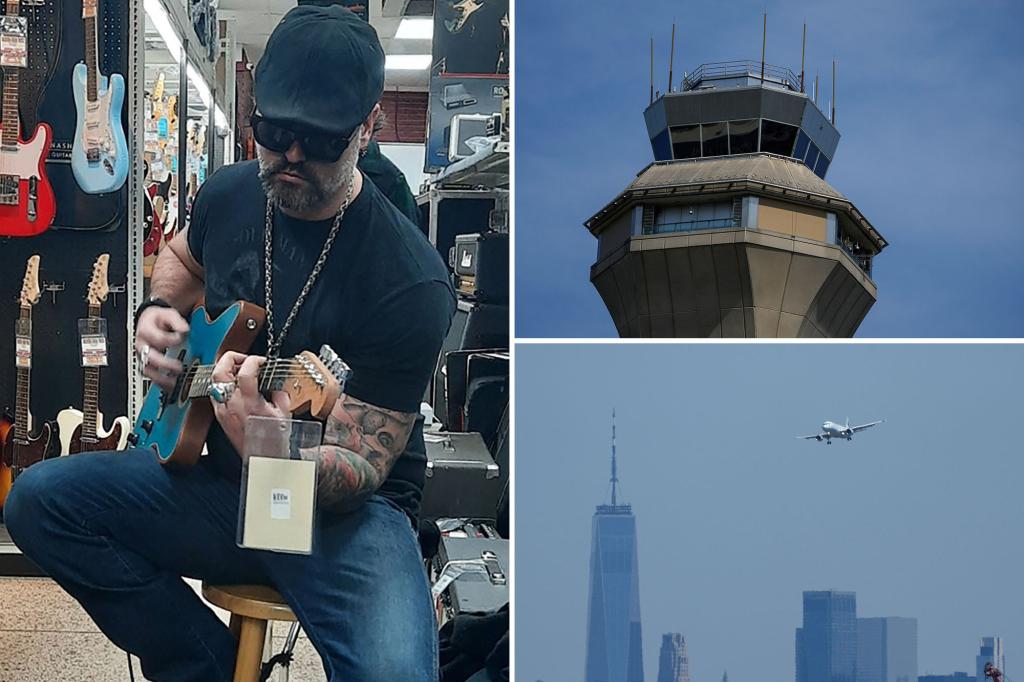Inside the High-Stakes World of NJ Air Traffic Control
New Jersey’s air traffic controllers are operating under unprecedented strain as surging flight volumes, staffing shortages, and aging technology push the system to its limits. An exclusive investigation reveals the hidden challenges these professionals face daily, with near-miss incidents rising and fatigue reaching critical levels. Experts warn that without immediate reforms, the safety of millions of passengers could be compromised.
The Crushing Weight of Sky-High Demand
Newark Liberty International Airport (EWR), one of the nation’s busiest hubs, handled over 43 million passengers in 2023—a 12% increase from pre-pandemic levels. Combined with Teterboro’s bustling private jet traffic and Atlantic City’s resurgence, NJ’s airspace is a pressure cooker. Controllers routinely manage 2,500+ daily flights in some sectors, far exceeding recommended safety thresholds.
“It’s like playing 3D chess at sprinting speed,” says veteran controller Mark Russo, who has worked Newark Tower for 17 years. “The margin for error shrinks every year, but the consequences remain catastrophic.”
Federal Aviation Administration (FAA) data shows:
- Near-miss reports in NJ airspace rose 28% YoY (2022-2023)
- 73% of controllers report mandatory overtime shifts monthly
- EWR ranks 4th nationally for runway incursion risks
Staffing Crisis Reaches Breaking Point
The FAA’s 2023 workforce report reveals a dire shortage, with NJ facilities operating at just 78% of optimal staffing. Retirements are outpacing new hires, exacerbated by the 2-3 year training pipeline. Trainee washout rates now exceed 35%, attributed to the role’s extreme stress.
Dr. Alicia Chen, an aviation psychologist at Rutgers University, explains: “Chronic sleep deprivation and decision fatigue are creating a perfect storm. Controllers make 150+ critical choices per shift—cognitive overload is inevitable without proper recovery time.”
Key staffing challenges include:
- Average controller age: 51 (up from 46 in 2010)
- Only 12% of trainees are women, limiting diversity
- Starting salaries ($45k) lag behind private sector equivalents
Technology Gaps and Infrastructure Woes
While major hubs like JFK modernize, NJ’s primary radar systems still rely on 1990s-era Host Computer Systems. The FAA’s delayed NextGen rollout—a $35B satellite-based upgrade—won’t reach full NJ implementation until 2026 at earliest.
Former NTSB investigator Carla Mendez warns: “When you combine outdated tech with human exhaustion, you get incidents like the January 2023 near-collision over Paramus. That was entirely preventable.”
Critical infrastructure deficits:
- 6 of 9 TRACON workstations need replacement
- EWR’s ASDE-X surface radar has 12 known blind spots
- Backup generator failures caused 3 outage incidents last year
The Human Cost of Systemic Failures
Behind the statistics are harrowing personal stories. Controllers anonymously report:
- Using stimulants to stay alert during 10-hour overnight shifts
- Panic attacks in bathroom stalls between aircraft handoffs
- Divorce rates 3x the national average for their age group
Yet quitting isn’t an option for many. “You’re trapped by the pension system,” explains a 22-year EWR veteran. “Leave before 25 years, you lose healthcare for your family.”
Pathways to Reform: What Comes Next?
The FAA’s 2024 reauthorization bill includes $120M for NJ facility upgrades, but experts argue cultural changes are equally vital. Proposed solutions:
- Immediate: Shift caps (max 6 consecutive days), mental health stipends
- Mid-term: Accelerated NextGen deployment, trainee housing subsidies
- Long-term: AI-assisted conflict detection, revised retirement incentives
As summer travel peaks, all eyes remain on NJ’s skies. “This isn’t just about delays or profits,” concludes Rep. Josh Gottheimer (D-NJ), who chairs an aviation subcommittee. “It’s about preventing the unthinkable through smart investment and respect for these essential workers.”
Call to Action: Concerned travelers can contact the FAA Hotline (1-800-255-1111) to voice support for controller workforce initiatives. Public pressure, experts note, often precedes meaningful policy change.
See more Business Focus Insider Team

